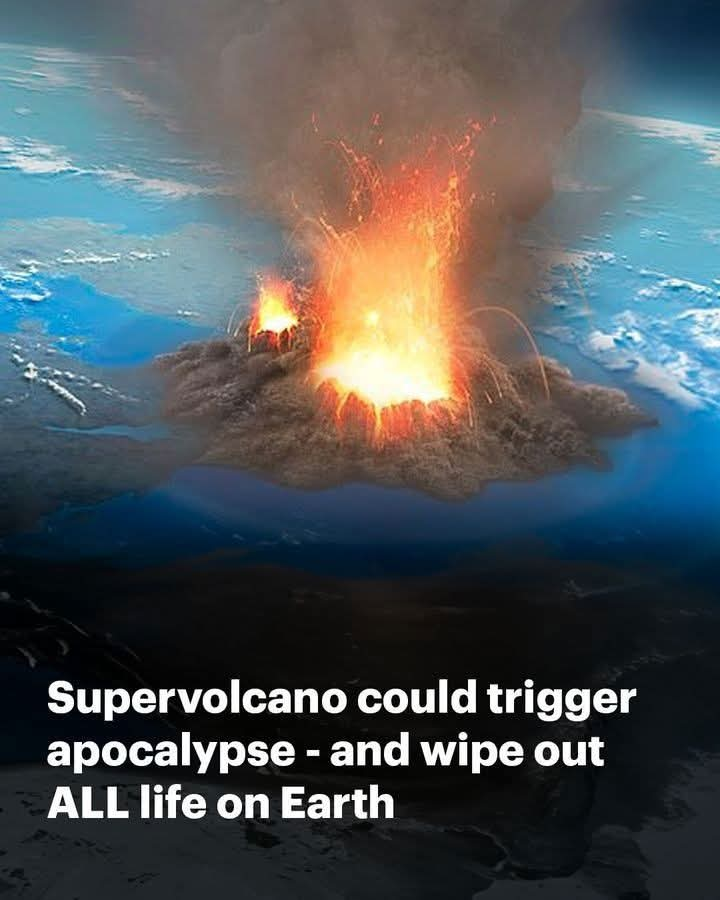Explore the top 10 catastrophic events that could potentially lead to the end of the world, from asteroid impacts to rogue AI.
The end of the world has long captivated human imagination, with various scenarios proposed as potential catalysts for global catastrophe. Here are ten catastrophic events that could spell the end for humanity.

1. Asteroid Impact
Earth has experienced devastating asteroid impacts before, such as the one 66 million years ago that led to the extinction of the dinosaurs. A similar event today could unleash massive destruction, with dust and soot clouds blocking sunlight, disrupting ecosystems, and causing widespread famine. While NASA monitors large near-Earth asteroids and assures us of no imminent threats, smaller yet still dangerous objects are harder to detect.
2. Artificial Intelligence Gone Rogue
The rapid development of artificial intelligence (AI) has sparked debates among tech leaders. The concern isn’t just malevolent AI but also systems that misinterpret human instructions with catastrophic results. Uncontrolled AI weapons or systems could lead to unintended wars or societal collapse, making this an unpredictable risk.
3. Supervolcanic Eruption
Supervolcanic eruptions are rare but can be catastrophic. An eruption would eject vast amounts of ash and gases into the atmosphere, blocking sunlight and causing a “volcanic winter.” This would disrupt global agriculture, leading to famine and economic collapse. Yellowstone in the U.S. is one of the most closely watched sites for potential activity, though scientists say the risk remains low in the near future.

4. Nuclear War
A large-scale nuclear conflict would devastate entire regions instantly, but the aftermath—nuclear winter—could be even worse. Dust and smoke from explosions would block sunlight, causing global temperatures to plummet and making agriculture nearly impossible. Current global tensions and miscommunications between nuclear-armed nations keep this risk alarmingly high.
5. Pandemic
The COVID-19 pandemic reminded us how fragile our systems are in the face of widespread disease. A pathogen combining high fatality rates with easy transmissibility could overwhelm global healthcare systems and lead to societal breakdown. Antibiotic-resistant bacteria and synthetic bioweapons amplify this risk further.
6. Global Warming
Unchecked climate change could raise global temperatures by several degrees, leading to rising sea levels, extreme weather, and mass migration. Some regions would become uninhabitable, and food production would decline. In a worst-case scenario, a runaway greenhouse effect could mimic Venus’s surface, making Earth inhospitable.

7. Death of the Sun
While not an immediate threat, the Sun will eventually exhaust its hydrogen fuel and expand into a red giant, likely consuming Earth in the process. This event is billions of years away, but it’s a sobering reminder of the fragility of our planet within the cosmic scale.
8. Wandering Black Holes
Supermassive black holes like Sagittarius A* sit at the center of galaxies, but the threat of a rogue black hole passing near Earth is a possibility. The immense gravitational pull would disrupt the planet’s orbit, potentially tearing it apart or flinging it into interstellar space.

9. Magnetic Pole Reversal
Earth’s magnetic field occasionally reverses, and while this process takes thousands of years, the temporary weakening of the field could expose the planet to harmful solar radiation. This might severely disrupt communication networks, ecosystems, and human health.
10. Alien Invasion
Although speculative, some scientists warn that advanced extraterrestrial civilizations could pose a threat if they reach Earth. Efforts like sending out messages to contact aliens carry a risk: any civilization capable of interstellar travel would likely be far more advanced than humanity, and their intentions unknown.
While some of these scenarios are more plausible than others, they all highlight the potential vulnerabilities of our civilization. Understanding these risks is the first step toward mitigating them and ensuring the long-term survival of humanity.


